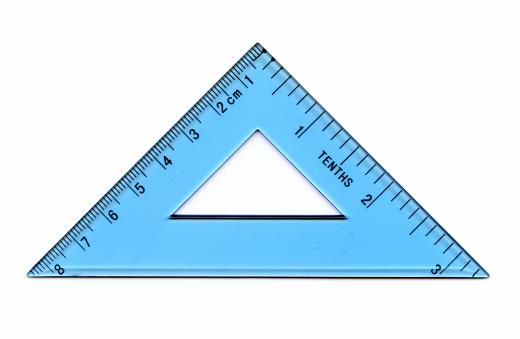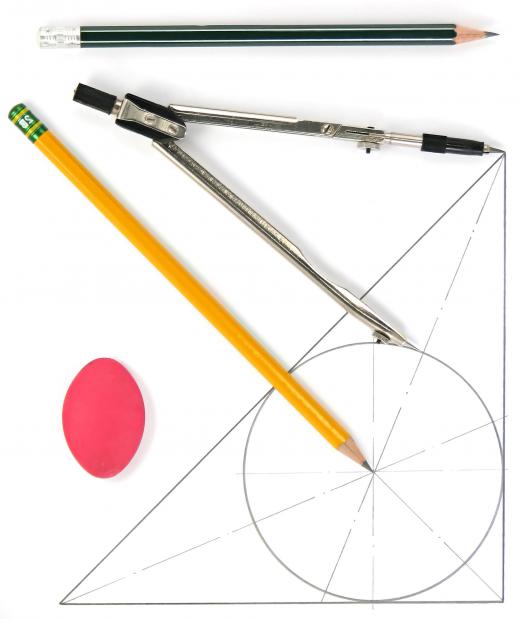A set square is a drawing aid used to draw known, pre-set angles in technical drawing and mathematical exercises. Set squares are triangular in shape and typically made of thin plastic, wood, or, less commonly, light-gauge steel. All set squares offer three drawing surfaces or planes representing three different angles which always include one right angle. There are two common set square angle combinations namely the 30°-60°-90°, and the 45°-45°-90° variants. To use these drawing aids correctly, they have to be placed on a stable, flat surface such as a the cross-arm of a T-square at a known angle to the paper prior to drawing the desired angle.
Technical drawing and mathematical exercises often require that lines be drawn at specific, accurate angles. There are several physical drawing aids used to achieve these accurately drafted angles, including the compass, the protractor, and the set square. Compasses and protractors may be used to mark off and draw a large spectrum of angular planes, but the simplest method of drawing common angles, such as 30°, 45°, and 90°, is the set square. These drawing aids consist of flat, triangular shape, typically hollow at its center, and representing a set of three known angles, one of which is always a right angle. Set squares can be found in 30°-60°-90° or 45°-45°-90° variations.

To use set squares correctly, they must have one side of the desired angle set placed on a stable, flat base line, such as the cross-arm of a T-square orientated at a known angle typically perpendicular to the paper. A pencil or pen is then used to mark off the angle along the other edge of the angle set. In this way, a set of perfectly parallel angles may be drawn anywhere on the paper, making complex orthographic projections fairly simple to draw. Set squares may also be used to draw lines at specific angles to existing lines on a drawing without the use of a T-square as long as care is taken to align the set square accurately with the existing lines.

Set squares are available in a wide range of sizes and materials, including transparent plastic, wood, or even light-gauge steel or aluminum. The instruments are often bought in sets that include both common angle combinations along with rulers and protractors. There are also adjustable set squares on the market, though they do not strictly qualify as such since they do not represent a set group of angles.
